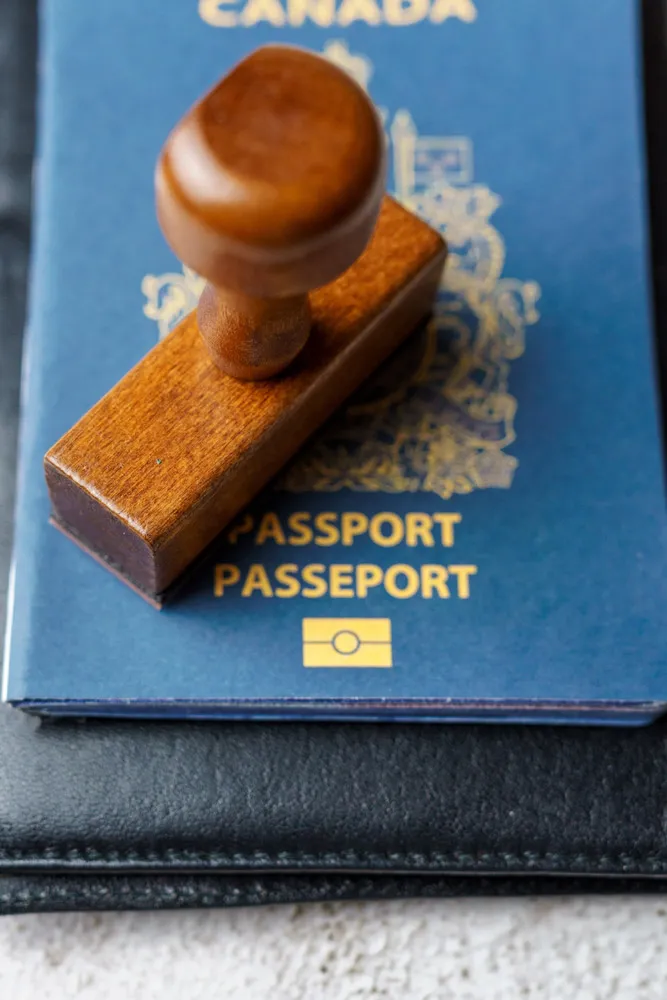Becoming a Canadian citizen means becoming part of a diverse, multifaceted society. Canada is known for welcoming immigrants from around the world and fostering an inclusive environment wherein citizens have a sense of responsibility towards each other and the environment. The Canadian Charter of Rights and Freedoms serves as a cornerstone, ensuring fundamental rights and liberties for all citizens.
Canadians uphold and take pride in national peacekeeping efforts, international diplomacy, and commitment to humanitarian causes. Being Canadian and holding a Canadian passport means committing to democratic principles, promoting equality, and contributing to the collective well-being of the nation and one’s community. Canada is also very open to innovation and makes efforts to promote future-thinking individuals who aim to better society.
In addition to legal obligations and rights, new Canadian citizens often engage in civic activities, volunteering, and community building. Political participation in local governance is encouraged, as is supporting charitable initiatives and engaging in community-building activities. Being Canadian means much more than just holding a new passport – it means becoming part of a nation that values collaboration, empathy, and a shared vision for a better future.
Advantages of Citizenship in Canada
Obtaining citizenship in Canada offers numerous significant benefits, enhancing life quality and global access for its holders. Key advantages include:
- Healthcare SystemAccess to a publicly funded healthcare system, providing essential medical services with little to no personal expense.
- Education StandardsHigh-quality education system, including access to publicly funded schools at all levels.
- Social Safety NetRobust social services encompassing social programs, unemployment benefits, and retirement planning.
- Travel AdvantagesEnhanced global mobility with a strong passport that facilitates visa-free access to numerous countries.
- Consular AssistanceGovernmental support and protection for citizens while abroad.
- Democratic ParticipationRights to vote and run for public office, shaping the nation’s governance.Top of Form.
Permanent Residency vs. Canadian Citizenship
While holding permanent residency status and citizenship in Canada are both means of residing and settling in the country, they have very distinct rights, responsibilities, and benefits.
Permanent residents in Canada can live, work, or study anywhere in the country. They are protected under the law but do not have the right to vote or run for political office. Permanent residents must adhere to Canadian laws and are expected to contribute to society. They are granted a residency card which must be renewed regularly. Failure to renew this residency card could result in losing residency status.
The advantages of obtaining permanent residency include having access to social benefits and being eligible for assistance programs. Permanent residents can also apply for citizenship provided they meet the residency and immigration requirements.
Canadian citizens also enjoy advantages, including the right to vote, run for political office, and obtain a Canadian passport for convenient international travel. Citizens have access to social benefits, public healthcare, and excellent education. They fully participate in shaping the country’s future through democratic processes and are expected to uphold Canadian law, serve on juries if called, and participate in the democratic process.
The main difference between permanent residency and citizenship is that Canadian citizens cannot lose their status due to residency requirements and can pass on their citizenship to their children born in or outside Canada.

Routes to Obtaining Canadian Citizenship
There are several ways to obtain Canadian citizenship, including naturalization, citizenship by descent, and adoption. Naturalization is the most common route. To be eligible for this route, the individual must have lived in Canada as a permanent resident for at least 1,095 days (three (3) years) out of the five years preceding the date of their application. During that time, they should have filed taxes consistently. They must demonstrate a certain level of English or French language skills and pass a citizenship test on Canadian history, values, institutions, and symbols. Once these requirements are met, applicants can submit their citizenship application to Immigration, Refugees, and Citizenship Canada (IRCC).
In addition to naturalization, there are several other important pathways for obtaining Canadian citizenship, each with its own set of criteria and processes. These include:
Each of these pathways has unique requirements, and applicants are encouraged to thoroughly review the eligibility criteria and application procedures as outlined by the Canadian government.
Eligibility Criteria for Canadian Citizenship
To be eligible for citizenship through naturalization in Canada, applicants must meet specific requirements set by Immigration, Refugees, and Citizenship Canada (IRCC). The eligibility criteria for this Canadian process vary depending on the applicant’s age, nationality, and residency status in Canada. However, all applicants seeking to become citizens through naturalization in Canada must fulfill the following foundational criteria:
- Be a permanent resident
- Have lived in Canada for at least three (3) out of the last five (5) years (a total of 1,095 days)
- Have consistently filed taxes, if required by their residency program
- Pass a citizenship test
- Show proof of language skills in English or French
- Take the oath of citizenship
To ensure the best results for their application, individuals must check the eligibility criteria for their specific case before proceeding.
Requirements for Citizenship Application
Applying for citizenship in Canada requires following several mandatory steps. It’s crucial for applicants to prepare a comprehensive list of documentation to support their application. The specific list of documentation will depend on the applicant’s nationality and unique situation. Applicants should refer back to the IRCC website and their official document checklist.
However, there are general requirements that all applicants will meet to complete their application for citizenship in Canada. The following are the basic requirements for citizenship:
Other requirements may apply depending on the applicant’s preferred application route for citizenship, their unique situation, and the document checklist provided by IRCC. Applicants should carefully review the instruction guide and checklist. They should gather the original documents or make certified copies if the originals aren’t available. Documents must be clear, legible, and complete, labeled with the applicant’s name and a description of the contents. Applicants are advised to check for updates on the IRCC website.
Canadian Citizenship Application Process
Applying for Canadian citizenship is a straightforward process, provided the applicant follows all steps diligently.
1
Confirm eligibility
Applicants must ensure they meet the eligibility criteria for their unique citizenship route. They must be a permanent resident, physically present in Canada for at least 1,095 days in the five (5) years before applying, have filed income taxes for at least three (3) years within that five-year period, and fulfill the language requirements.
Applicants can use the online calculator or the provided form to calculate their physical presence in Canada over the required period.
2
Gather documents
Applicants must collect all necessary documents to support their application, including proof of residency, language test results, income tax filing, identity documents, criminal record checks, and any other documents relevant to their situation.
3
Complete the application form
The application form should be completed accurately and uploaded online. Once complete, the application will receive a generated barcode page. It’s essential to save this barcode for further use.
4
Pay fees online
Applicants must pay the CAD $630 application fee online, consisting of a processing fee ($530) and a right of citizenship fee ($100). They must have a valid email address, access to a printer, and a credit card, Debit MasterCard, or Visa Debit card.
5
Submit application
Applicants can upload the complete and upload application online or send it by mail or courier to a case processing center.
6
Await processing
Citizenship applications are typically processed within 16 months. This time is subject to change depending on the complexity of the application, the political climate when it is submitted, and other factors. Applicants can check the status of the application online.
7
Prepare for the citizenship test (if applicable)
Applicants between 18 and 54 should prepare for the citizenship test and/or interview on Canada’s history, geography, government, and the rights and responsibilities of citizenship based on the study guide while their application is processed. They can also continue to improve their language skills during this time if necessary.
Other steps may apply depending on the applicant’s case. The IRCC might request additional documents, so applicants are advised to continuously check the status of their application status online during the processing period. Applicants may also be asked to come to the IRCC office to review the original documents they submitted with their application, as well as their passport or travel document.
Citizenship Test and Interview
Applicants between 18 and 54 must take a citizenship test and/or interview on Canada’s history, geography, government, and the rights and responsibilities of citizenship. If invited to take the interview or test, the applicant will be told what to bring in their invitation letter. Applicants may be tested on their knowledge of English or French, Canada’s history, geography, government, and the rights and responsibilities of citizenship (the citizenship test).
Applicants may receive one of the following to indicate they must attend an interview or test:
- Notice to appear to take a citizenship test
- Notice to appear for an interview with a citizenship official
- Notice to appear for a hearing with a citizenship officer or a citizenship judge
Applicants must prepare in advance for the citizenship test and interview. Failure to attend and pass this step could result in a failed application. They can prepare by using one of the study guides provided by IRCC on their website. The study guide will contain the relevant information applicants need to know to pass their citizenship. They can also prepare by improving their language abilities and improving their knowledge of Canadian history and law.
The Oath of Citizenship
If the applicant meets all the requirements for citizenship and passes their test, the IRCC will notify them of the location and date of their citizenship ceremony. This is a celebratory event but also a crucial step in the process. The applicant is nearly through the entire citizenship process at this point. They will only need to take the Oath of Citizenship and obtain their Certificate of Canadian Citizenship. Once they pass this step, they are officially sworn in as Canadian citizens and can proceed with obtaining their passports and other citizenship documents. They can also proceed to make plans as a new citizen of Canada, including traveling with their new passport and accessing social services.
Is it possible to retain dual nationality after taking the Oath of Citizenship?
Canada is one of the countries that recognizes dual citizenship, permitting individuals to hold Canadian citizenship and citizenship from another country without forfeiting their Canadian status. Dual citizens are entitled to the same rights and responsibilities as those with singular Canadian citizenship. They can apply for and use a Canadian passport for travel, although entry to Canada must be with their Canadian passport. The implications of dual citizenship may vary depending on the policies of the other countries involved. Individuals can lose their citizenship in Canada under specific circumstances, such as voluntary renunciation or revocation due to misrepresentation.

Renouncing Canadian Citizenship
In some cases, Canadian citizens may decide to renounce their citizenship. To renounce their citizenship, the individual must submit a formal application and attend a citizenship ceremony where the renunciation is confirmed. Reasons for giving up citizenship in Canada might include acquiring citizenship in another country that does not allow dual citizenship due to personal or professional considerations. Some individuals renounce Canadian citizenship to facilitate residence in a country with restrictive citizenship policies. Others may do so for tax-related purposes, as some countries have complex tax implications for dual citizens. It’s important to note that the decision to renounce citizenship is a significant and irrevocable step, and individuals considering this should carefully weigh the implications and seek legal advice if necessary.
Resuming Canadian Citizenship
Individuals who renounced their citizenship in Canada may later decide to reclaim it, which involves a series of specific steps. These steps are similar to those required for foreign nationals applying for citizenship. Initially, applicants need to secure permanent resident status in Canada, if not already held. They are required to live in Canada for a minimum of 365 days within the two years immediately preceding the application for citizenship reinstatement. This is accompanied by additional requirements that vary based on individual circumstances. The application for reinstatement of citizenship must be accompanied by the necessary fees, followed by a processing period. Upon approval, applicants are invited to a ceremony where they take an oath, officially reclaiming their citizenship in Canada.
Rights and Responsibilities of Canadian Citizens
All Canadian citizens have rights and responsibilities that contribute to the cohesion and well-being of the nation. They must adhere to Canadian laws, including participating in democratic processes such as voting in federal, provincial, and municipal elections. They must fulfill tax obligations by filing income tax returns. Canadian citizens are encouraged to contribute to the multicultural character of the country by promoting diversity, inclusivity, and understanding. Additionally, citizens are encouraged to engage in civic activities, volunteering, and community building to foster a sense of shared responsibility and unity.
Revocation and Loss of Citizenship
Once Canadian citizenship has been obtained and the Oath of Citizenship taken, it is generally secure and won’t be revoked. However, there are some instances where citizenship may be revoked or citizenship lost due to personal choice. Individuals can formally apply to give up their citizenship if they so choose. In other cases, citizenship can be revoked due to fraudulent acquisition of citizenship, such as providing false information during the application process.
In cases involving dual citizenship, if a Canadian citizen voluntarily acquires citizenship in another country that does not allow dual citizenship, they may lose their Canadian citizenship. Involuntary loss of citizenship, also known as citizenship revocation on national security grounds, is a rare occurrence and typically involves individuals convicted of terrorism, espionage, or similar offenses. Loss of citizenship is a grave matter and should not be taken without considering the potential lasting consequences.
FAQ
To be eligible for citizenship in Canada, you must be a permanent resident of Canada, have physically resided in the country for at least 1,095 days in the five (5) years before applying, file personal income taxes for at least three (3) years within the 5-year period, demonstrate proficiency in English or French (if aged 18 to 54), and possess knowledge of Canada and its responsibilities and privileges.
Canada generally allows dual citizenship. You can be a citizen of Canada and another country simultaneously. However, it’s essential to be aware of the policies of the other countries involved, as some nations may have restrictions or implications regarding dual citizenship.
The processing time for citizenship applications in Canada varies, typically around 16 months. This duration includes the processing of the complete application, the citizenship test, the interview, and the citizenship ceremony.
Yes, applicants aged 18 to 54 are generally required to take a citizenship test, which assesses knowledge of Canada’s history, geography, government, and the rights and responsibilities of citizenship. The test is based on the official citizenship study guide provided by the government.
Individuals with a criminal record may still be eligible for Canadian citizenship, but certain serious offenses may affect eligibility. It is crucial to disclose any criminal history during the application process and seek legal advice if necessary. The government considers factors such as rehabilitation and the nature of the offense when assessing eligibility.
